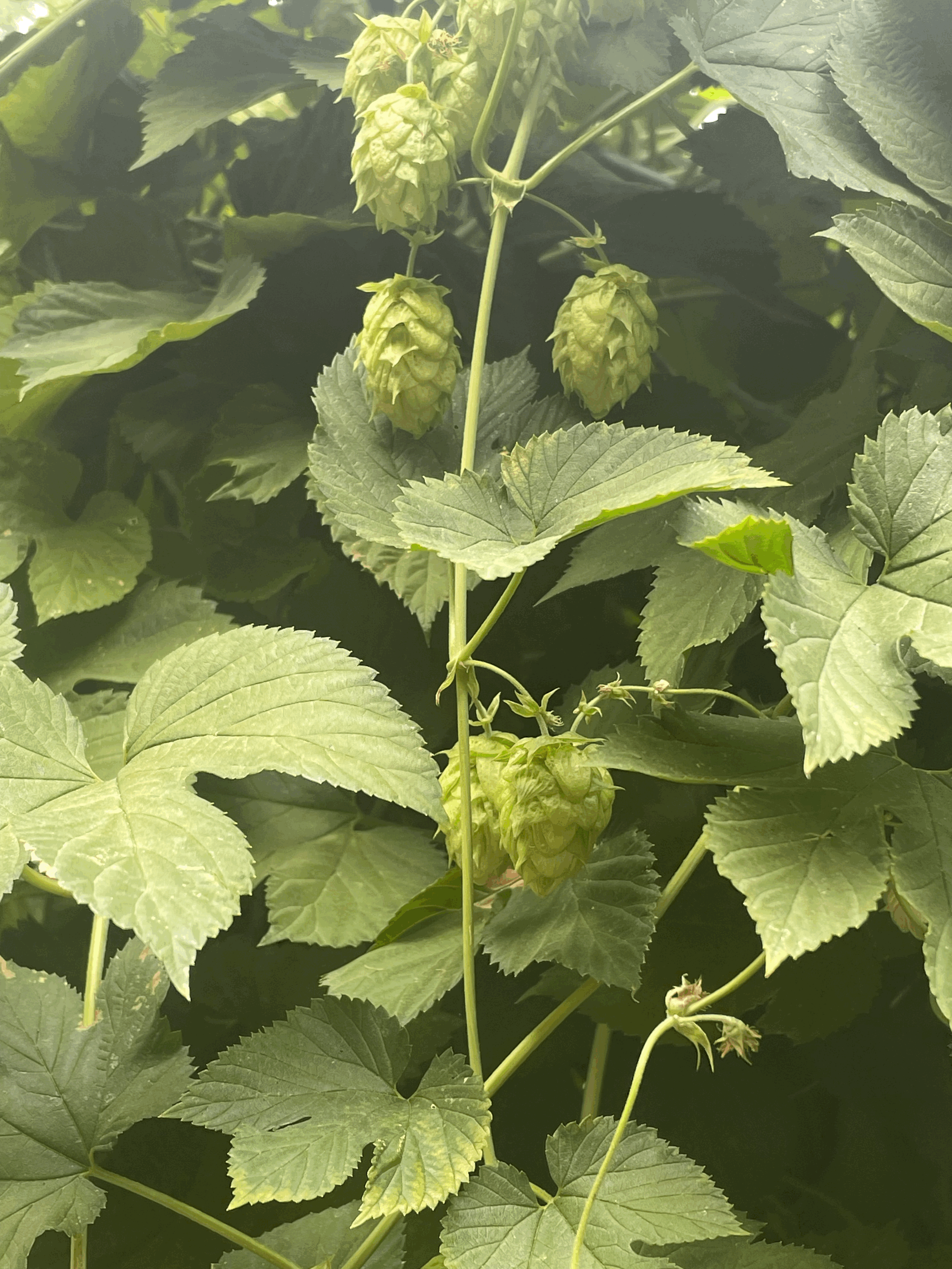Focus on Hops
Most people know hops as the bitter taste in beer, but did you know that hops has been used as a medicine since the early 1800s? Early medical literature describes its use as a tonic as well as a treatment for a variety of conditions, including insomnia, anxiety, stomach ailments, and inflammatory conditions.
“Hops” is common name for Humulus lupulus, a climbing plant classified as a “bine” (rather than vine) because of its twisting stem and fine hairs that cling to other surfaces as it climbs. The flowers look like small cones and are often referred to as hops cones or strobiles. When the strobiles mature, a gland with yellow powder (lupulin) appears between the green leaves of the cone. This powder, which looks like pollen, contains the hops resins, acids and essential oils of the flower.
These days, preparations from hops, such as tinctures, infusions, and capsules, continue to be used by many people for a variety of conditions. Recent research has shown that hops bitter acids improved mood and sleep quality, and that it may prove to be a beneficial treatment in some menopausal symptoms.
Herbalists and practitioners of natural medicine recommend plant medicines because they are generally safe to use. Of course, this depends on the plant, as some plants have potent toxic properties. The picture below was taken in our local pharmacy in Portola, CA, in a case of medicines from the 1800s! The Lloyd Brothers of Cincinnati produced plant medicines for allopathic and homeopathic physicians in the 19th century. Our hops tincture (Lupulin Lullabye) — from the 21st century — is made from hops grown and harvested in the Sierra Nevadas of Northern California.


